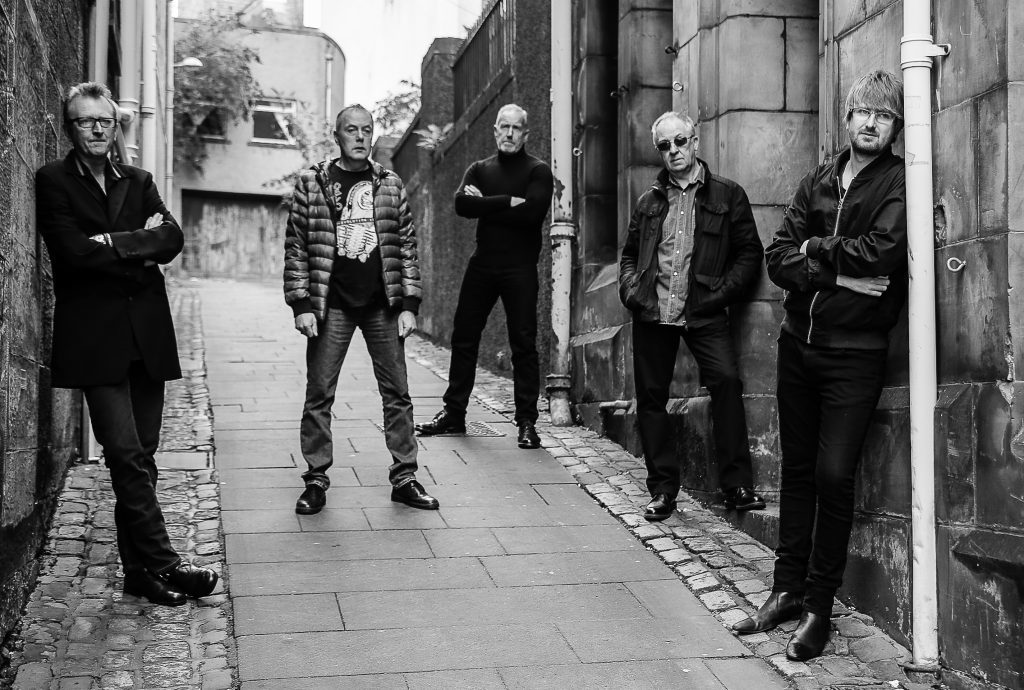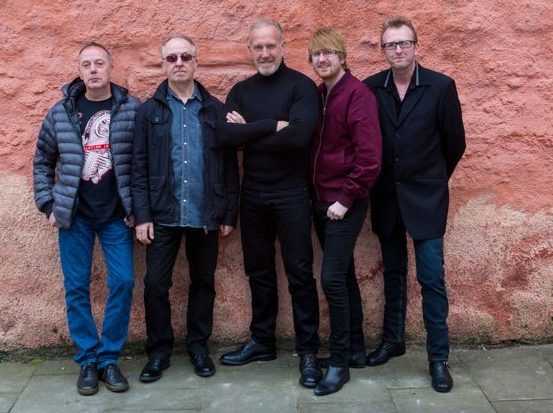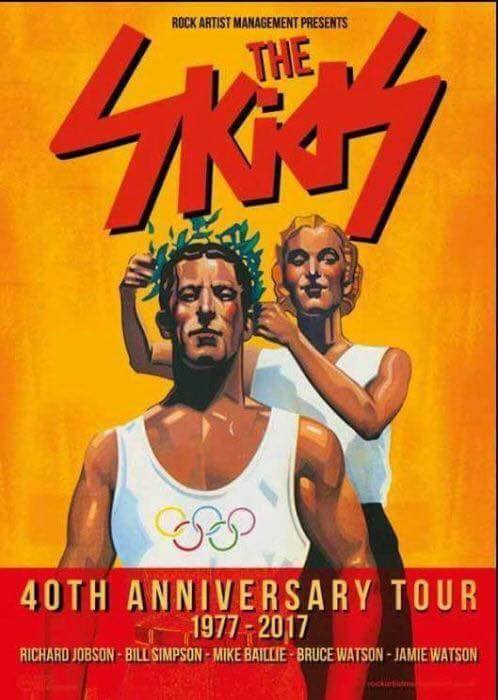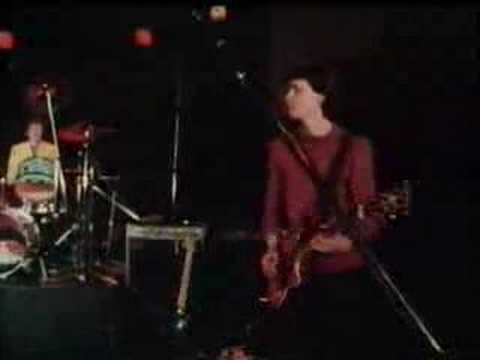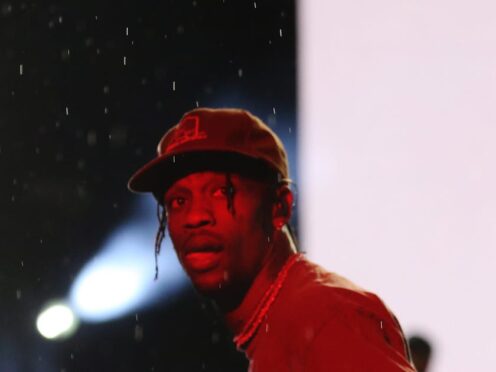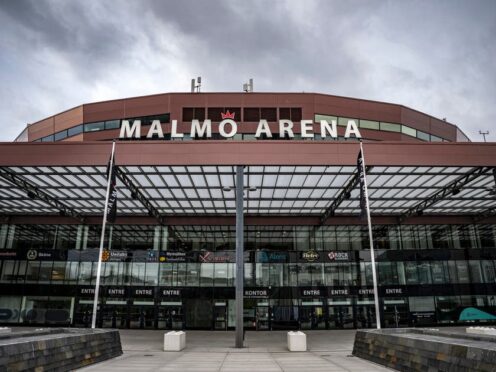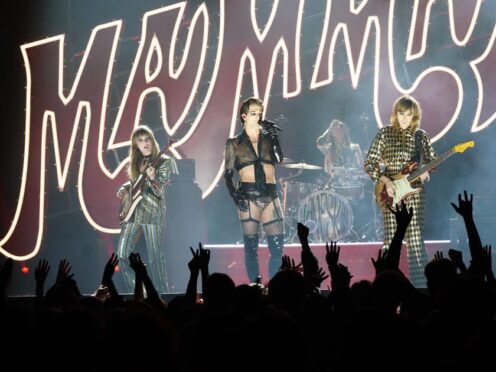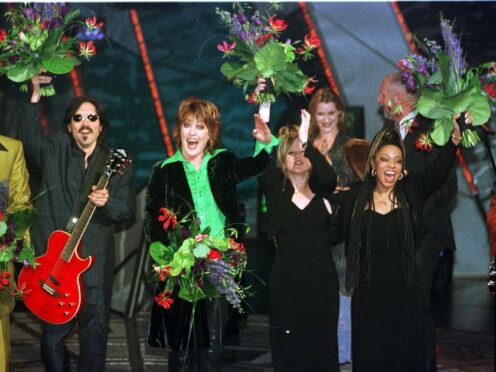Ahead of 40th anniversary tour gigs in Montrose and Dunfermline, The Skids frontman Richard Jobson speaks to Michael Alexander about his love for the Fife and Angus coast – and why the “passionate” songs he wrote in the 1970s are as relevant as ever in today’s troubled political times.
It was the day that two of the greatest rock bands in the world joined forces to help restore New Orleans’ legendary music community.
A year after Hurricane Katrina devastated the American city in 2005, U2 and Green Day united to perform a cover of The Skids punk classic The Saints Are Coming.
The performance at the pregame show of the Monday Night Football match between the New Orleans Saints and the Atlanta Falcons in September 2006 marked the launch of a fundraising venture for the victims of Katrina.
Eleven years on, and now a whole new chapter of Skids music history is being written with the reformed Fife band specially invited by Green Day to join them as a support act at their mammoth Bellahouston Park, Glasgow, concert on July 4.
The Skids will play before the US rockers on American Independence Day, as part of their 40th anniversary celebrations which has seen them play a series of sell-out shows recently, winning rave reviews from fans and critics alike.
Skids frontman and former movie director Richard Jobson told The Courier the experience would be “amazing”.
“We’ve never played with Green Day before,” said Richard, who wrote The Saints Are Coming about a friend who had been killed in Northern Ireland while serving with the British Army.
“I went to see them in the studio when they were recording my song back in 2006. They were really nice guys – very charming, very kind and generous. Obviously I watched the performance on the Monday Night Football when they did it live at the New Orleans stadium which was allegedly the largest TV audience in history.
“It’s pretty extraordinary stuff to think that I wrote that song in Dunfermline library when I was 16!”
It’s almost two months since The Skids launched their 40th anniversary tour in their hometown of Dunfermline.
Since then they’ve toured Scotland, England and Ireland.
Now the band are returning north of the border for much anticipated gigs in Montrose and back to Dunfermline – and Richard can’t wait to return to an area he loves.
“I really genuinely am looking forward to Montrose,” he said.
“It’s one of my favourite towns in Scotland. I love that area, Lunan Bay, St Cyrus. I’ve always been an east coast person.
“When I’m back home, when I’m in Fife, I always hit the fishing harbours of Fife – St Monans, Crail, and all those kind of places.
“And when I go further afield I don’t head west I always head up to the Cairngorms with my brother – we go walking. It’s more isolated, not so many people, more beautiful in a way.
“Then it’s back to Dunfermline and the old kingdom. When we played at PJ Molloys at the start of the tour it was tremendous. I loved the intimacy of it. People were literally standing two inches away from us. But that was how it started 40 years ago so I had no problem with that.
“If you are comfortable communicating with people there’s nothing to hide. It was great fun, we had lots of laughs, and basically (made fun of) ourselves.”
The Skids played their first live gig in Dunfermline in August 1977.
The iconic post-punk band, founded by the late Stuart Adamson with Bill Simpson, Tam Kellichan and Richard Jobson, enjoyed their first big success with Into the Valley in 1979.
Other anthems included Working for the Yankee Dollar and Masquerade.
But for frontman Richard Jobson, 56, and the modern line-up of Bill Simpson, Mike Baillie, Bruce Watson and Jamie Watson, the tour is about far more than nostalgia with August seeing the release of Burning Cities – the first album from The Skids in 35 years.
Originally the idea was to do a couple of gigs. But it’s developed into a full blown tour and Richard has been struck by the way the old songs now seem as relevant as ever in today’s troubled political climate.
“It’s been awesome – a wonderful experience,” he said.
“The music itself is incredibly physical. It’s physically exhausting music. It’s very powerful. We certainly put a shift in.
“When I go on stage I’m definitely 16. I just wish I was 16 when I come off the stage!” he laughed.
“People will say to me things like ‘are those leather trousers you’re wearing because they are just drenched in sweat’.
“That’s as much to do with the power of the music and the whole passion of the thing.
“But it’s great just watching people re-living a moment in their own lives that was very important to them.
“A lot of us are defined by the first records we buy – especially the generation of the 1970s.
“We didn’t have such an eclectic mix of stuff to choose from as generations do now.
“When people bought Working for the Yankee Dollar or The Saints are Coming or something as their first ever records, it defined peoples’ attitude to life, and how they see the world.
“Yet a lot of the people that would have bought that record when they were young would never have seen us live.
“I think people forget that The Skids packed it in when we were at our peak. We were selling out the big venues like the Glasgow Apollo, Hammersmith Odeon, Manchester Apollo – then we never played again. We were a band who finished as high as we could possibly be.
“Then we disappeared and people thought they would never get the chance to see us again – especially south of the border.”
Richard said that some of the bigger gigs in England during this tour had “opened his eyes” to The Skids’ gig-starved fan base that exists south of the border.
Original fans from the 1970s generation were in attendance with sons and grandsons.
Yet a younger audience is being attracted in its own right.
He added: “In many ways the music is still relevant – even to a younger generation now because it’s still got the same anger, a kind of sense that the world is unjust and quite political.
“And of course, when we started out we expected the world to be a better place, and it hasn’t become so.
“It’s even tougher for the younger generation now than it was for us. That seems to be seeping into the whole atmosphere of these gigs that we are attracting a younger audience.
“I think it’s really interesting that our new album is called Burning Cities – the title tells you everything you need to know – Into the Void, Dream of a New World Order, A World on Fire, Refugee – these songs tell you everything you need to know about what we are singing about.”
Richard says there’s a “ferocity” about the new album that the band weren’t expecting.
“We listened to it the other night and we were like ‘wow, this is like a bunch of teenagers!’,” he said.
He maintains that the “inner anger” is still there.
“Our politics haven’t changed – we feel the same way,” he added.
“We look at the actions of successive governments and go ‘my God it’s truly appalling’. Recent tragic events in London were off the scale – these are poor people that no one cares about.”
Jobson says the old songs like Into the Valley, The Saints Are Coming and Masquerade were, at their heart, about social justice, the horrors of war and about young people being taken into those circumstances.
Now on reflection, given that they were written when he was a teenager, he regards them as quite mature.
“I know I got a hard time for the songs being a bit abstract and stuff,” he said, “but I don’t really see that. Performing them every night, they have a boiling rage about them.”
Richard says he remains proud of the band’s Fife roots – and “one of the nicest things about The Skids”, he says, is that they were not from one of the big cities.
“We were from a rural culture in Fife,” he continued, “so we were writing about stuff that reflected our lives. We never tried to be cool, because that’s not really what we were about.
“The one thing – the mantra of the band at the beginning, and I think it’s still the same – is that if we weren’t on the stage we’d be in the audience.
“I think that’s really important to us. We wanted to break our demarcation. On stage now I really talk to the audience a lot. I really communicate with them, what the songs are about, what we are about, our views on the world and stuff.
“And people really like that. Actually a lot of my contemporaries from that period who are out playing again don’t even try to communicate.
“They say to the audience it’s a privilege for you to be there. That’s not the case. It’s a privilege for the band to be there! It’s upside down I think.”
After the Green Day gig, the band have a bit of time off.
But Richard will be continuing to work to get his book finished. It’s called Into the Valley and tells the story of the miner’s son’s early years growing up in Fife when he was a member of the notorious Av Toi gang in the Abbey view area of Dunfermline, and the health problems he dealt with after being diagnosed with epilepsy.
“The book will tell how I dealt with my health condition that people don’t know about,” he added.
“It’s a kind of triumph over adversity story. People thought I’d be the first one to pop my clogs with The Skids because I was never very well. Now I seem to be the one who’s fighting fittest at this stage.
“I’m pretty much in control of it now. I’ve got myself into a good situation physically and mentally.
“I’m in charge whereas before it used to be in charge, and that was a rather unpleasant situation to be in. It’s really good.
“We’re hoping September for the book launch but probably looking at same time as the album. Fingers crossed.
“There’s a company in England that want to re-release one of my old books. So there’s a lot going on – a lot of good things.”
Richard is also pleased with the success of a punk music exhibition, featuring iconic images of The Skids, that’s been on display in Dunfermline.
Fire Station Creative has been hosting ‘Scared To Dance:The Skids and the Scottish Punk Rock Revolution 1977’.
The exhibition is curated by Jobson and music business consultant, Ronald Gurr and ties in with The Skids’ reformation and 40th anniversary tour.
“I’m really proud of the fire station thing,” added Richard. “It’s going to the Scottish Parliament as part of young people in politics month. They want it to be at the heart of it. How young people from Scotland became politicised through music in the 1970s. It just goes to show how relevant the music and the underlying themes still are to these troubled times.”
*The Skids play Montrose Town Hall, June 29; Dunfermline Glen Pavilion, June 30.
